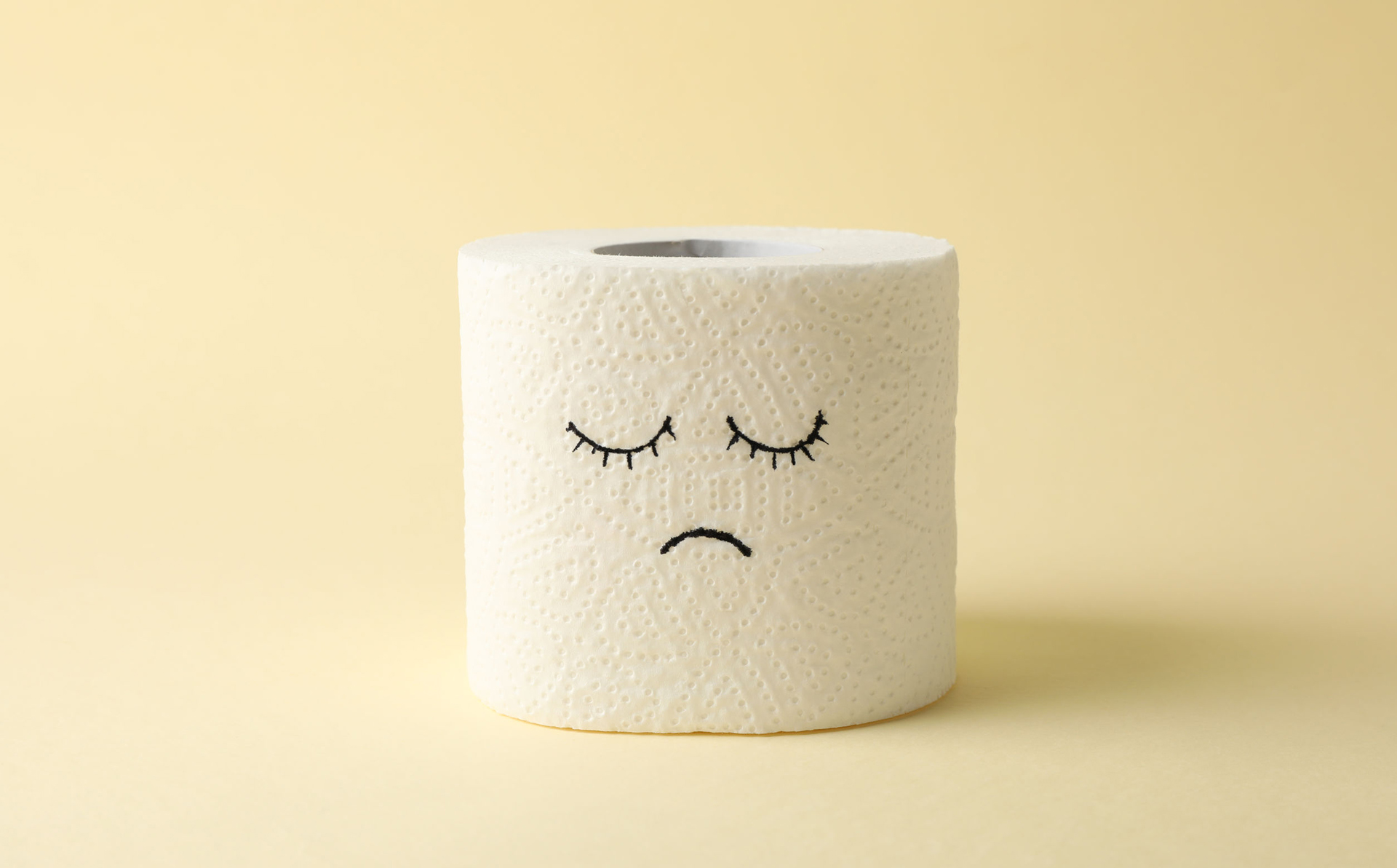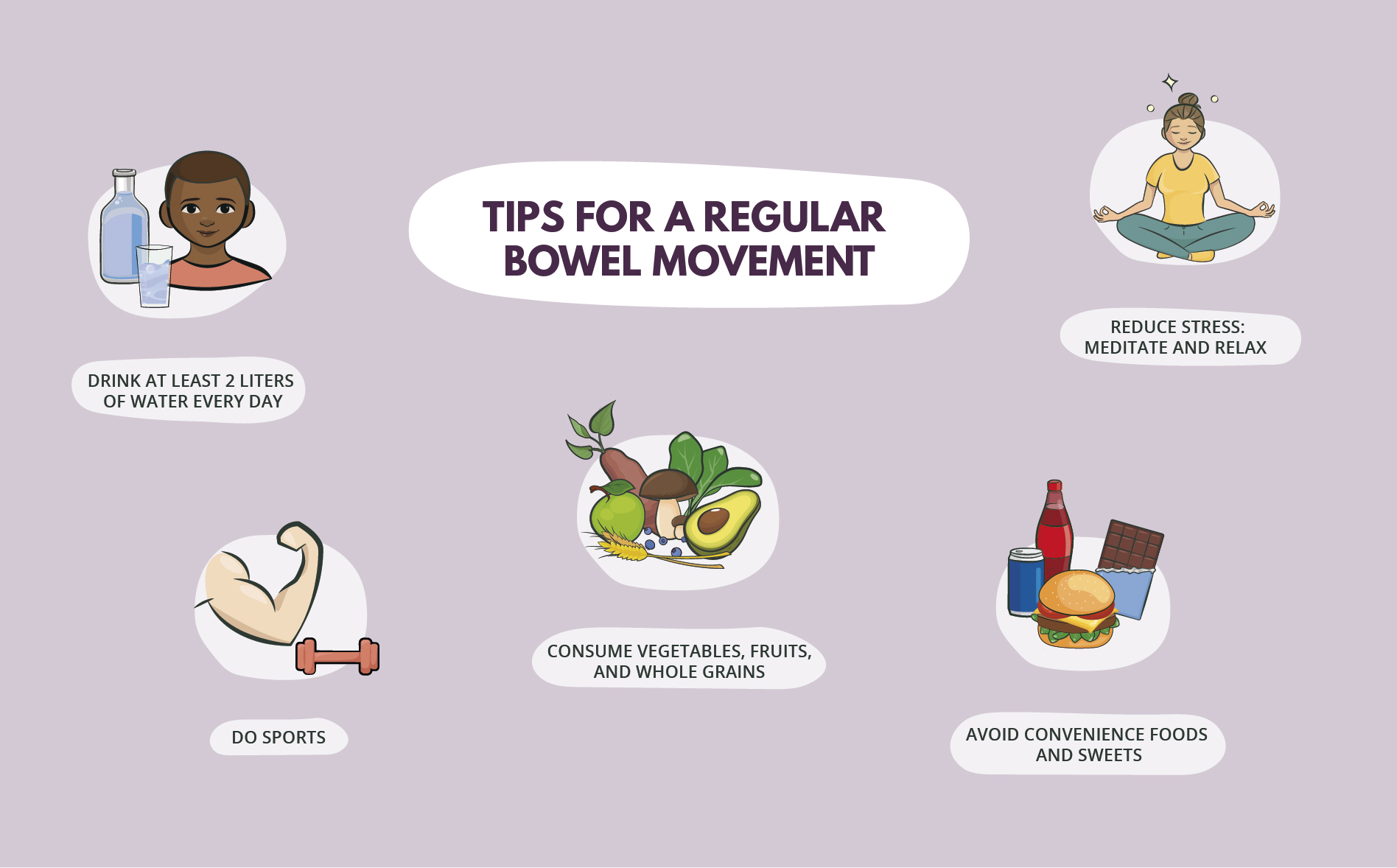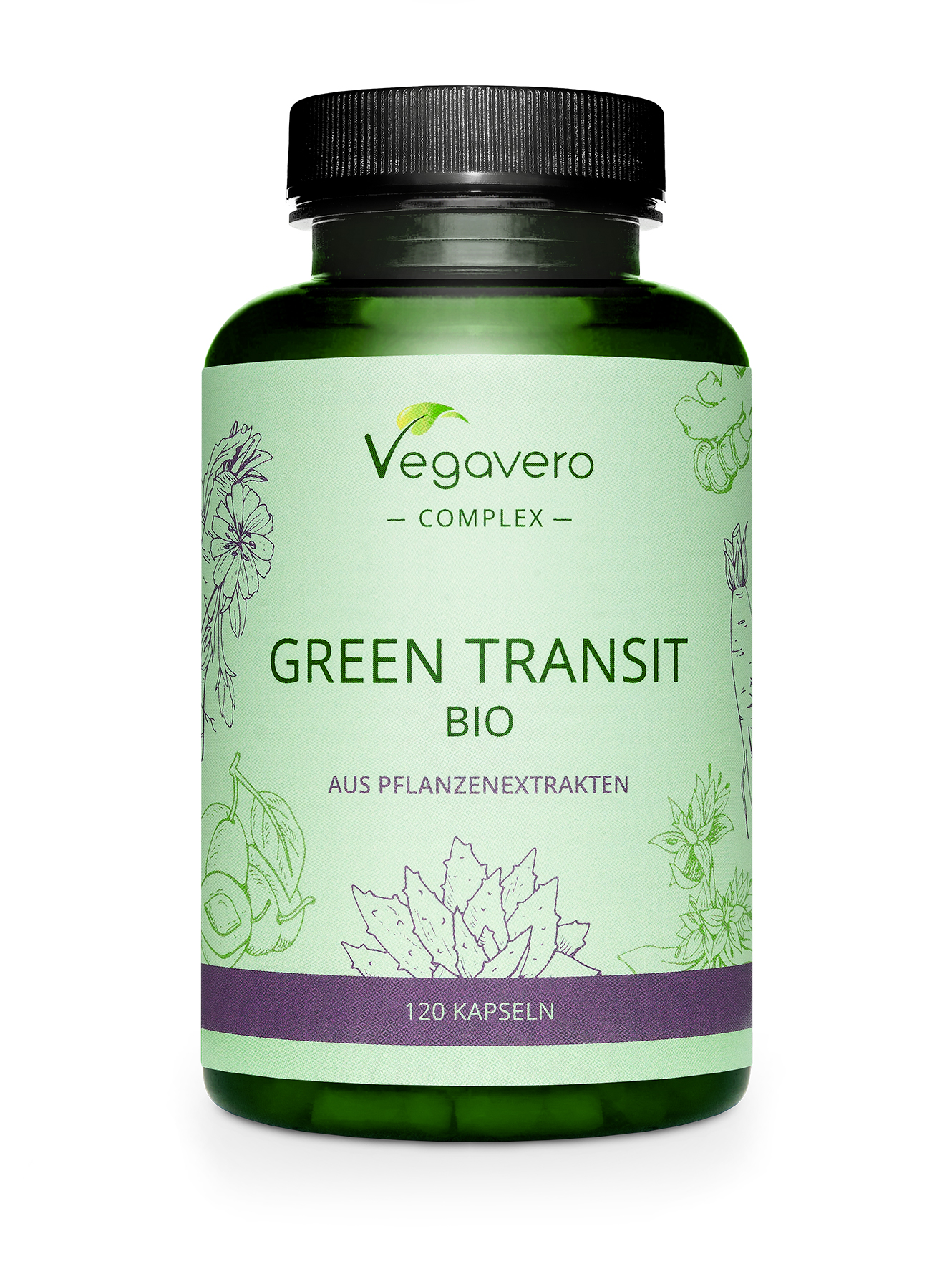
Hippocrates already understood that “all disease begins in the gut.” Unfortunately, overlooking the health of our gastrointestinal tract is a common phenomenon – so are digestive issues like constipation. In fact, constipation affects up to a fifth of the world’s population [1]. Medically, it’s defined as having fewer than three bowel movements per week.
The lack of bowel movement – which can persist over several weeks in the case of chronic constipation – can swiftly lead to abdominal discomfort, pain and bloating and we all know how that can impact our physical as well as mental well-being. It comes to no surprise that laxatives are amongst the most commonly used drugs. Luckily, they are not the only solution, and most certainly not the best one in any case. As the causes for constipation are most often diet-related or the result of other lifestyle factors, there are a few simple things we can implement in our daily routine to get and keep things moving.
1. Load up on fibre
As we are talking about our digestive system, we of course must talk about diet. When it comes to the activity of our gastrointestinal system there is one component in our food that is especially relevant - and that is fibre. Dietary fibre is a type of carbohydrate but in contrast to starches and sugars it cannot be digested and absorbed by the body. Nevertheless, fibre greatly influences our digestive health. Even though we cannot directly “use” these indigestible fibres, the microbes that colonise our intestine can. By feeding on fibre, they produce anti-inflammatory compounds that not only help our gut but can also benefit the entire body [2].
There are two types of dietary fibre, namely soluble and insoluble fibre. The latter one is particularly relevant in terms of intestinal transit, as it promotes the movement of digested food through our digestive tract, increases stool bulk and thereby relieves constipation [3].
So where do we find this precious fibre? As fibre is a component of plants, you will obviously only find it in plant-based foods. The best sources of fibre are legumes and whole grains, followed by vegetables, fruits, nuts, and seeds. Before loading your plate with tons of beans and grains, though, you should consider taking it slowly as too much fibre can initially be counteractive, especially when you are not used to having a lot of fibre in your diet.
2. Stay hydrated
Fibre goes hand in hand with water. It has the capacity to retain large amounts of fluid which adds bulk and moisture to our stool and that’s exactly what we want in order to keep constipation and all its uncomfortable symptoms at bay. Most of the fluid we consume is absorbed into the bloodstream by the colon. So, if we don’t drink enough liquid, the colon will start squeezing out all the residual moisture from the waste matter, leaving it dry and hard to pass. The beverage of choice is water, of course, but herbal tea is also a great alternative. Limit the intake of alcohol and milk, as both can cause people to become constipated.
3. Reconsider your eating habits
Relieving constipation and maintaining a healthy digestive system isn't just about the foods you eat but also about when and how you eat them. It’s crucial to give your gut a break. When the body is fasted, the muscles in the small intestine produce a periodic wave that serves to clean the gut of bacteria and food scraps. Once you start to munch on food again, this “cleansing” process stops instantly and may over time lead to a condition called small intestinal bacterial overgrowth (SIBO), hence an excessive number of bacteria in the small intestine. SIBO can cause several digestive troubles, including – you guessed it – constipation.
Eating several smaller meals throughout the day may not be such a good idea for another reason. In contrast to small amounts of food, large and bulky meals stretch the stomach which in turn sends a signal to the colon directing it to make room for the food that’s on its way down. People who are more prone to having irregular stools should thus consider having three big meals a day rather than five or six small ones.
There is even more you can do regarding your eating habits to maintain a good bowel movement: Try eating at the same time every day, avoid mindless snacking, chew your food properly, don’t eat right before going to sleep and avoid very spicy, greasy and high-fat foods – your entire gut will most certainly thank you for it.

4. Get moving
Sitting in front of a computer or lying on the couch all day does not only slow your heart rate, but your gastrointestinal system as well, commonly leading to a longer transit time. Being physically active can help prevent and relieve constipation by decreasing the time it takes food to move through the intestine. A daily exercise regime should thus be included as a preventative strategy.
It is certainly not necessary to run a marathon every day to keep things moving. Your gut will already be happy if you just go for a walk, do some yoga or stretching, ride your bike or dance around while cooking dinner - just stay active! Nevertheless, if you enjoy aerobic exercise, you will benefit even more as the accelerated breathing and heart rate increases blood flow and stimulates the peristaltic movement of the intestine that causes waste matter to move further down.
5. Don’t stress
Stress can heavily influence the activity of our digestive tract. And yes, emotional stress can also cause constipation. When we experience stress or anxiety, our brain releases stress hormones which play a role in the so-called “fight-or-flight response”.
The “fight-or-flight response” is an automatic physiological reaction to some type of stressor or threat – and we are not (only) talking about facing an actual tiger here. It could be anything from an approaching interview to relationship troubles or being stuck in traffic. This intrinsic survival mechanism triggers the release of stress hormones including cortisol and adrenaline (epinephrine) that cause the body to divert blood flow from the intestines toward vital organs, such as the heart, lungs, and brain. As a result, intestinal movement slows down, and constipation is very likely to occur.
Avoiding stress is thus crucial for avoiding constipation and other digestive issues. Include relaxation techniques like breathing exercises or meditation on a regular basis to keep calm and prevent your intestinal tract pushing the breaks.
6. Resort to natural supplements
We have already mentioned over-the-counter laxatives as a quick and effortless solution for difficult or infrequent defecation. If excessively used they come with a bunch of side effects, though [4], so why not take a more natural route to provide a little extra help?
Prunes or dried plums are a well-known home remedy for constipation not only because of their high fibre content. They also contain sorbitol, a type of sugar alcohol that was shown to have laxative effects and improve stool consistency and frequency [5]. Around 5-10 prunes or 1-2 cups of prune juice a day should do the trick.
Another commonly employed natural stool softener is psyllium husk. As an excellent source of soluble fibre, it contains gel-forming compounds that retain water in the small intestine and thereby increase water flow in the colon, which ultimately increases stool frequency and relieves constipation [6]. As it can be challenging to consume psyllium husk powder, a capsule supplement may be a more convenient option.
Apart from fibre supplements, probiotics can also serve as a natural constipation remedy [7]. These "good" bacteria may contribute to a healthy gut flora and thereby improve overall digestion. Clinical trials demonstrated that taking a probiotic supplement can improve gut transit time, soften stool, and increase the number of weekly bowel movements. Take a quick look at the label, though, as probiotics that contained Bifidobacterium strains appeared to be most effective.
It’s a matter of lifestyle
Bowel movements should be effortless. If that isn’t the case, then it’s first of all important to figure out what may be the underlying reason for the slow colonic transit or hard stool. As mentioned, digestive issues like constipation are most often lifestyle-related and can easily be prevented and treated by following the tips we gathered in this blog post. Watching what you put in your mouth should be the top priority to achieve and maintain digestive health so let’s finish off with another one of Hippocrates' wise notions: "Let food be thy medicine and medicine be thy food".
sources
[1] Sanchez MI, Bercik P. Epidemiology and burden of chronic constipation. Can J Gastroenterol. 2011 Oct;25 Suppl B:11B-15B.
[2] Tan J, et al. The role of short-chain fatty acids in health and disease. Adv Immunol. 2014;121:91-119.
[3] Yang J, et al. Effect of dietary fiber on constipation: a meta analysis. World J Gastroenterol. 2012 Dec 28;18(48):7378-83.
[4] Xing JH, Soffer EE. Adverse effects of laxatives. Dis Colon Rectum. 2001 Aug;44(8):1201-9.
[5] Attaluri A, et al. Randomised clinical trial: dried plums (prunes) vs. psyllium for constipation. Aliment Pharmacol Ther. 2011 Apr;33(7):822-8.
[6] Erdogan A, et al. Randomised clinical trial: mixed soluble/insoluble fibre vs. psyllium for chronic constipation. Aliment Pharmacol Ther. 2016 Jul;44(1):35-44.
[7] Martínez-Martínez MI, Calabuig-Tolsá R, Cauli O. The effect of probiotics as a treatment for constipation in elderly people: A systematic review. Arch Gerontol Geriatr. 2017 Jul;71:142-149.
Recommended Products

GREEN TRANSIT COMPLEX
A unique combination of high-quality plant extracts of Aloe vera, Chicory, Plum, Yellow Gentian, and Ginger root that naturally supports regular bowel movement.


